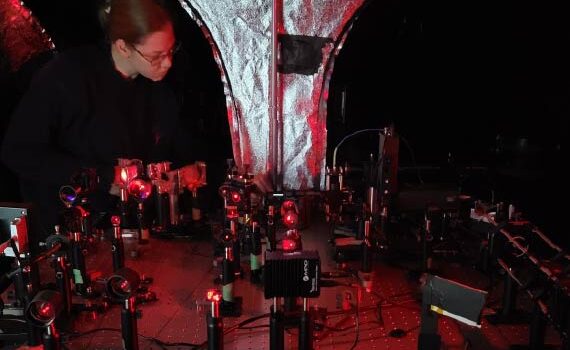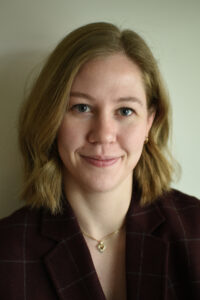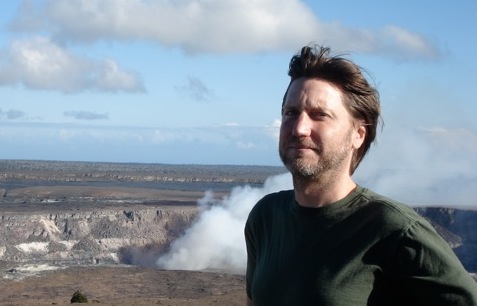
Date/Time: Wednesday November 12, 2025 starting at 7:30PM
Location: University of Victoria, Bob Wright Centre, Lecture Theatre A104. Park in Lot 1 (pay parking) and cross Ring Road
“Maximizing image resolution for ground-based telescopes using Adaptive Optics: it is all in the details” – Dr. Maaike van Kooten, AO developer, Herzberg Astronomy & Astrophysics, National Research Council Canada
Ground-based telescopes that look in the visible and near-infrared wavelengths (colours visible by the human eye as well as more red) lose spatial information due to blurring of light by the Earth’s atmosphere. As a result, when we build bigger and bigger telescopes we collect more light but do not gain in image clarity/resolution. Adaptive optics (AO) is a technology used to physically correct, in real-time, the effects of the atmosphere and regain clear, sharp images. AO has enabled detailed studies of the galactic centre and its black hole as well as direct imaging of exoplanets among many others things.

While some AO systems are able to correct 80-90% of the distortion, we are not yet able to achieve the maximum possible resolution with large ground-based telescopes. In this talk, I will focus on the latest AO R&D happening in Victoria on our local telescopes and put it into context of the wider global AO community. I will also highlight the work being done at large facilities in Hawaii to further push the limits of our AO systems. Precise measurements, fast computing, minimal delay, exquisite control, high quality optics, and data reduction all need to come together and push the limits of what is possible from the ground to enable the next generation of large telescopes to make new discoveries.
I will show you how small things can have a big impact and how we are tackling these seemingly small things. AO is truly all in the details.
Bio: Dr. Maaike van Kooten is an adaptive optics (AO) developer at the National Research Council (NRC) Canada’s Herzberg Astronomy and Astrophysics Research Centre in Victoria. She works on improving AO systems for current and future telescopes. Currently, Dr. van Kooten leads R&D projects on machine learning for AO, high speed cameras in AO, and pyramid wavefront sensing making use of the local AO system – REVOLT. She is also involved in various facility class AO projects.
Before coming to Herzberg, she worked at the University of California Santa Cruz where she tested predictive control and Zernike wavefront sensing at W.M. Keck Observatory to enable the detection of the faintest of exoplanets. Dr. van Kooten along with her collaborators were recently awarded the New Horizons Prize in Fundamental Physics from the Breakthrough Foundation for this work. Dr. van Kooten obtained her PhD at Leiden Observatory in the Netherlands in 2020. In her free time, she enjoys reading, cycling, and judo.



